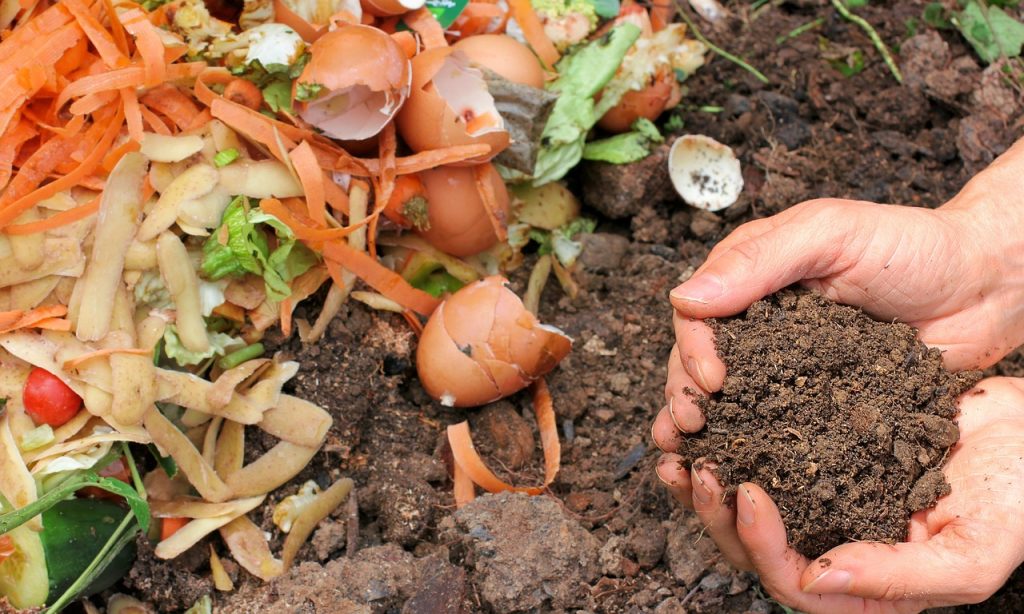If you’re looking to give your garden a boost, organic fertilizers might just be the answer. With all the buzz surrounding organic gardening, it’s no wonder that more and more people are choosing to go the natural route when it comes to nourishing their plants. But why choose organic fertilizers for your garden? Well, not only are they better for the environment, but they also promote healthier, more resilient plants. In this article, we’ll explore the benefits of organic fertilizers and why they should be your top choice for a thriving garden.
What Are Organic Fertilizers?

Definition of organic fertilizers
Organic fertilizers are natural substances that are derived from plant or animal sources and are used to enhance soil fertility and provide essential nutrients to plants. Unlike synthetic fertilizers, organic fertilizers are made up of biodegradable materials and do not contain any chemical additives or harmful substances.
Types of organic fertilizers:
There are various types of organic fertilizers available, each with its own nutrient composition and benefits. Some common examples include:
- Compost: Compost is produced by decomposing organic materials, such as kitchen scraps, yard waste, and livestock manure. It is rich in organic matter and serves as a nutrient-rich soil conditioner.
- Manure: Animal manure, such as cow, horse, or chicken manure, is a valuable source of nutrients like nitrogen, phosphorus, and potassium.
- Bone meal: Made from animal bones, bone meal is high in phosphorus and calcium, promoting strong root growth and flowering.
- Fish emulsion: Fish emulsion is made from processed fish waste and is a rich source of nitrogen and trace minerals.
- Blood meal: Blood meal is produced by drying and grinding animal blood. It is high in nitrogen and helps promote lush foliage in plants.
- Seaweed/kelp: Derived from seaweed or kelp, these fertilizers are packed with essential macronutrients, micronutrients, and growth-promoting hormones.
Difference between organic and synthetic fertilizers
The main distinction between organic and synthetic fertilizers lies in their composition and mode of action. Organic fertilizers are derived from natural sources, whereas synthetic fertilizers are manufactured chemically.
Organic fertilizers release nutrients slowly and are broken down by soil microorganisms, providing long-term benefits to the soil and plants. On the other hand, synthetic fertilizers provide an immediate nutrient boost but can lead to nutrient imbalances and harm beneficial soil organisms.
Additionally, organic fertilizers contribute to improving soil structure and fertility, whereas synthetic fertilizers often result in degradation of soil health over time. Organic fertilizers are also considered more environmentally friendly and safer for humans and pets compared to synthetic fertilizers.
Benefits Of Using Organic Fertilizers

Environmentally friendly
One of the key benefits of organic fertilizers is their eco-friendliness. Unlike synthetic fertilizers, organic fertilizers are derived from natural sources and do not contain harmful chemicals or additives that can pollute soil, water, and air. By using organic fertilizers, you can minimize your environmental footprint and contribute to sustainable gardening practices.
Improves soil health
Organic fertilizers significantly improve soil health and fertility. They enhance soil structure, increase organic matter content, and improve the nutrient-holding capacity of the soil. This leads to improved water retention, better aeration, and drainage, creating an ideal environment for plant growth.
Slow-release nutrients
Organic fertilizers provide a slow-release of nutrients to plants. As organic matter breaks down, nutrients are released gradually over time, ensuring a steady supply of essential elements for plant growth. This slow-release characteristic helps prevent nutrient leaching and reduces the risk of nutrient imbalances in the soil.
Safe for humans and pets
Unlike synthetic fertilizers that may contain harmful chemicals, organic fertilizers are safe for both humans and pets. They do not pose a risk of chemical exposure or toxicity, making them an ideal choice for households with children or pets that frequently roam in the garden.
Promotes natural biodiversity
Using organic fertilizers supports natural biodiversity in the garden. Organic materials contain a wide range of nutrients, trace elements, and beneficial microorganisms that nourish the soil and promote the growth of beneficial organisms like earthworms and beneficial bacteria. This, in turn, helps maintain a balanced ecosystem and improves overall plant health.
Promotes Sustainable Gardening

Reduces chemical runoff
One of the significant advantages of organic fertilizers is their ability to reduce chemical runoff into water bodies. Synthetic fertilizers often lead to excessive nutrient runoff, causing water pollution and harmful algal blooms. By opting for organic fertilizers, you can minimize the negative impact on water resources and protect aquatic ecosystems.
Minimizes water pollution
Organic fertilizers are less likely to cause water pollution compared to synthetic fertilizers. Synthetic fertilizers can leach into groundwater and nearby water bodies, contaminating them with excess nutrients. Organic fertilizers release nutrients slowly, allowing plants to absorb them more effectively, thereby minimizing the risk of water pollution.
Supports beneficial organisms
Organic fertilizers promote the growth of beneficial soil organisms such as earthworms, beneficial bacteria, and fungi. These organisms play a vital role in decomposing organic matter, enhancing soil structure, and cycling nutrients. By using organic fertilizers, you provide a favorable environment for these beneficial organisms to thrive, promoting a healthy and balanced soil ecosystem.
Reduces dependence on synthetic fertilizers
Regular application of organic fertilizers improves soil fertility and nutrient availability, reducing the need for synthetic fertilizers. By transitioning to organic fertilizers, you can gradually reduce your dependence on synthetic fertilizers, helping you save money and reducing the risk of over-fertilization or nutrient imbalances in the soil.
Improves Soil Structure And Fertility

Increases organic matter content
Organic fertilizers, such as compost and manure, are rich in organic matter. When added to the soil, they increase the organic matter content, improving soil structure and fertility. Organic matter helps bind soil particles together, improving water infiltration, reducing erosion, and enhancing nutrient retention.
Enhances nutrient-holding capacity
Organic fertilizers enhance the nutrient-holding capacity of the soil. They improve the cation exchange capacity (CEC) of the soil, allowing it to retain essential nutrients like potassium, calcium, and magnesium. This ensures a steady supply of nutrients to plants, reducing the risk of nutrient deficiencies and improving overall plant health.
Boosts microbial activity
Organic fertilizers provide food sources and habitat for beneficial soil microorganisms. These microorganisms decompose organic matter, releasing nutrients in a form accessible to plants, and improve soil structure. Increased microbial activity leads to improved nutrient cycling, nutrient availability, and biological processes in the soil, all of which are essential for healthy plant growth.
Promotes soil aeration and drainage
Regular use of organic fertilizers helps improve soil aeration and drainage. Organic matter helps create pore spaces in the soil, enhancing its ability to hold and release air. This promotes root respiration and prevents oxygen deprivation in the root zone. Additionally, organic matter improves soil structure, allowing excess water to drain freely, reducing the risk of waterlogged conditions and root diseases.
Increases Nutrient Availability

Slow-release of nutrients
One of the key advantages of organic fertilizers is their ability to provide a slow-release of nutrients to plants. As organic materials decompose, nutrients are released gradually over time, ensuring a steady supply of essential elements. This slow-release characteristic reduces the risk of nutrient leaching and provides plants with a continuous source of nutrients for sustained growth.
Balanced nutrient composition
Organic fertilizers typically contain a balanced nutrient composition, providing plants with a wide range of essential elements. Unlike synthetic fertilizers, which often have a narrow focus on specific nutrients, organic fertilizers nourish plants with a mix of nutrients, promoting balanced and healthy growth.
Reduces nutrient leaching
Organic fertilizers help reduce nutrient leaching, which occurs when excessive nutrients are washed away from the root zone by rain or irrigation. The slow-release nature of organic fertilizers allows plants to take up nutrients more efficiently, minimizing the risk of nutrient loss and improving nutrient-use efficiency. This not only benefits the plants but also helps protect the environment by reducing nutrient pollution in water bodies.
Safe For Humans And Pets

No harmful chemicals
One of the main advantages of organic fertilizers is that they do not contain harmful chemicals. Unlike synthetic fertilizers, which may contain pesticides, heavy metals, or other toxic substances, organic fertilizers are made from natural plant or animal sources and do not pose a risk to human health or the well-being of pets.
Non-toxic
Organic fertilizers are non-toxic and safe for humans and pets. They do not release any dangerous gases or emit strong odors that could harm respiratory systems. This makes them a suitable choice for those with sensitivities or allergies.
Reduces risks of exposure
Using organic fertilizers reduces the risks of exposure to harmful chemicals. Synthetic fertilizers can contain chemicals that can be harmful if accidentally ingested, inhaled, or come into contact with the skin. By choosing organic fertilizers, you minimize the risks associated with chemical exposure, making gardening a safer and healthier activity for you and your family.
Maintains A Balanced Ecosystem
Supports beneficial organisms
Organic fertilizers support beneficial organisms in the soil, such as earthworms, beneficial bacteria, and fungi. These organisms play a crucial role in breaking down organic matter, improving soil structure, and cycling nutrients. By nourishing the soil with organic fertilizers, you create an environment that fosters the growth and activity of these beneficial organisms, promoting a healthy and balanced soil ecosystem.
Preserves natural water sources
Using organic fertilizers helps preserve natural water sources. As organic fertilizers release nutrients slowly and are less prone to leaching, they minimize nutrient runoff into rivers, lakes, and groundwater. This helps maintain the quality of water sources, preventing eutrophication and maintaining the delicate balance of aquatic ecosystems.
Reduces soil erosion
Organic fertilizers, by improving soil structure and increasing organic matter content, help reduce soil erosion. When soil is rich in organic matter, it becomes more resistant to erosion caused by wind or water. By reducing soil erosion, organic fertilizers help preserve the topsoil, which is crucial for plant growth, and prevent the loss of nutrients and valuable soil microorganisms.
Improves Plant Growth And Yield

Enhances nutrient uptake
Organic fertilizers improve the availability and uptake of nutrients by plants. The slow-release nature of organic fertilizers ensures a consistent supply of nutrients that are readily absorbed by plant roots. This promotes healthy growth, strong foliage, and robust root systems, leading to improved overall plant health and higher yields.
Stimulates root development
Organic fertilizers stimulate root development in plants. The organic matter in these fertilizers enhances soil structure, allowing roots to penetrate more easily and explore a larger volume of soil. This leads to better nutrient and water absorption, increased drought tolerance, and improved plant stability, resulting in healthier and more vigorous plants.
Reduces plant stress
By providing a steady supply of nutrients and improving soil health, organic fertilizers help reduce plant stress. Plants grown with organic fertilizers are more resilient to external stressors such as drought, temperature fluctuations, and pest attacks. This allows plants to focus on growth and reproduction, leading to improved plant quality and higher crop yields.
No Synthetic Additives

Avoids harmful chemicals
One of the significant advantages of organic fertilizers is that they do not contain harmful synthetic additives. Synthetic fertilizers often contain chemicals such as pesticides, herbicides, or growth hormones, which can have negative effects on the environment and human health. Organic fertilizers, being derived from natural sources, provide nutrients without any potentially harmful additives.
Minimizes risk of over-fertilization
Using organic fertilizers minimizes the risk of over-fertilization, which can be detrimental to plants and the environment. Synthetic fertilizers, if applied in excess or improperly, can result in nutrient imbalances and environmental pollution. Organic fertilizers, being slow-release in nature, provide a controlled release of nutrients, preventing the risk of over-fertilization.
Won’t burn plants
Unlike some synthetic fertilizers that can burn plant roots or foliage if applied excessively, organic fertilizers are gentle and less likely to cause damage. They release nutrients slowly, allowing plants to absorb them at a pace they can handle. This reduces the risk of fertilizer burn and ensures that plants receive a balanced and steady supply of nutrients.
Cost-Effective In The Long Run

Minimizes input costs over time
While organic fertilizers may have a higher upfront cost compared to synthetic fertilizers, they can be cost-effective in the long run. Organic fertilizers improve soil fertility and structure, reducing the need for additional inputs such as synthetic fertilizers, soil amendments, or pesticides. Over time, this reduction in input costs can outweigh the initial investment in organic fertilizers.
Reduces reliance on expensive synthetic fertilizers
By transitioning to organic fertilizers, you can reduce your reliance on expensive synthetic fertilizers. Synthetic fertilizers can be costly, especially when large quantities are required for extensive gardens or agricultural operations. Organic fertilizers offer a more sustainable and budget-friendly alternative, providing a long-term solution for maintaining soil fertility and supporting healthy plant growth.
In conclusion, organic fertilizers offer numerous benefits for gardeners, both in terms of environmental sustainability and plant health. They enhance soil structure, improve nutrient availability, support beneficial organisms, and reduce the risk of chemical exposure. By using organic fertilizers, you can promote sustainable gardening practices, improve your garden’s ecosystem, and enjoy healthier, more productive plants.
© 2023 by gardener.wiki. All rights reserved. No part of this document may be reproduced or transmitted in any form or by any means, electronic, mechanical, photocopying, recording, or otherwise, without prior written permission of gardener.wiki.


